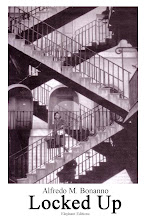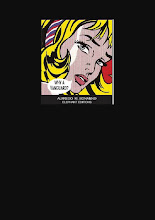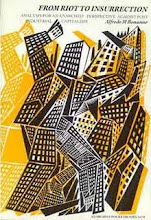Work is a subject that is coming back into fashion in a big way in newspapers, academic lectures, papal sermons, electoral speeches and even articles and pamphlets produced by anarchists.
The main questions raised are: what can we do about growing unemployment? How can we give meaning to lost professionalism in jobs that are undergoing the effects of neo-industrial development? What alternatives can be found to replace traditional work? And, finally, and this is the way many anarchists think, how can we abolish work or reduce it to the indispensable minimum?
Let us make it clear right away that none of these problems interests us. We are not concerned with the political problems of those who see unemployment as a danger to democracy and order. We do not feel any nostalgia for lost professionalism. We are even less interested in elaborating libertarian alternatives to grim factory work or intellectual labour, which are unwittingly doing nothing but toe the line of the advanced post-industrial project. Nor are we for the abolition of work or its reduction to the minimum required for a meaningful happy life. Behind all this there is always the hand of those who want to regulate our lives, think for us, or politely suggest that we think as they do.
We are for the destruction of work and, as we will try to demonstrate, that is quite a different matter. But let us proceed in an orderly fashion.
The post-industrial society, which we will come to later, has resolved the problem of unemployment, at least within certain limits, by dispersing the work force into flexible sectors which are easy to manoeuvre and control. In actual fact the social threat of growing unemployment is more theoretical than practical, and is being used as a political deterrent to dissuade wide social strata from attempting to organise in ways that might question the choices of neo-liberalism, especially at international level. So, precisely because workers are much easier to control when they are skilled and attached to the workplace with career prospects in the production unit, there is insistence everywhere—even among the ecclesiastical hierarchies—on the need to give people work and thereby reduce unemployment. Not because the latter constitutes a risk from the point of view of production, but because the danger could come from precisely that flexibility which is now indispensable to the organisation of production today. The fact that the worker has been robbed of a precise identity could lead to social disintegration, making control more difficult in the medium term. That is what all the institutional fuss about unemployment is really about.
In the same way, the productive process no longer requires a high level of professional training, at least for the majority of workers. The need for skilled labour has been replaced by a demand for flexibility, i.e., an adaptability to do tasks that are constantly being changed, and willingness to move from one firm to the other. In short, they must adapt to a life of change in accordance with the bosses’ needs. This is now being programmed from school onwards, where the institutional cultural elements that once constituted the basic technical knowledge from which the world of work built real professionalism, are no longer provided. Not that there is no longer a need for a high level of professionalism. But this now only applies to a few thousand individuals who are trained in postgraduate courses often funded by the big companies themselves in their attempt to secure people suitable for indoctrination and conditioning.
Until recently the world of work was permeated with an iron discipline: the assembly line, strict controls by white collar workers, to the point of secret files and sacking for any deviation from the norm. Holding on to a job meant submission, acquiring a military-style mentality, learning procedures that were sometimes complex, sometimes simple, and applying them, identifying with them. It meant considering one’s self, one’s whole way of life and everything that mattered in the world including one’s ideas and social relations, to be summed up in them. The worker spent most of his time in the factory, made friends with his workmates, talked about problems at work during his time off. He used recreational facilities provided by the company and when the holidays came round he ended up going away with his workmates and their families. To complete the picture the large companies held social events and organised periodical outings to bring families together. Their children went to the same schools, and one of them usually inherited his father’s job when he retired. In this way work went full circle, affecting not only the worker’s whole personality but also that of his family, thereby creating complete identification with the company. Just think of the tens of thousands of Fiat workers in Turin who supported the Juventus football team owned by Fiat boss, Agnelli, for example. This world has now disappeared for good. Even though some residue of it still exists, most of it has disappeared along with its projectual uniformity. A provisional, uncertain work relationship has replaced it. Insecurity about the future is a fundamental element, and lack of skill means the lack of a base on which to plan one’s life as a worker, now left with no project beyond earning enough to make ends meet or pay a mortgage.
In the past, escape from work took the form of searching for alternative ways of producing so as to reappropriate the creativity extorted by the capitalist mechanism. The model applied was the refusal of discipline and sabotage of the production lines in order slow down the work pace and get time off—even if only minutes—free from alienation. In this way the time stolen from meticulous factory supervision had a value as something alternative. Just for a moment, one breathed free from the prison-like atmosphere of the factory or the office. As we can see, such a world has almost ceased to exist, and will go further along this road in the near future.
More than that. The old conditions did not differ all that much from the primitive factory structures—the textile works set up with the British capital that had been accumulated over two centuries of piracy—where the work force fleeing from the English and Scottish countryside literally came to be enclosed en masse. But under these conditions, the taste of regained time was soon poisoned by the inability to give it any meaning beyond the work environment. In other words, time was regained in terms of reducing physical fatigue, not because one had the knowledge or desire to do something different. And this was also due to the fact that one had become part of one’s job, espoused it for life. Even the revolutionary theories of anarcho-syndicalism did not contradict this basic condition. Instead they gave it a libertarian qualification, giving the syndicalist organisation the task of building the free society of the future, starting off from the work categories that already existed.
So, up until a few years ago, abolishing work simply meant reducing fatigue, creating enjoyable alternative work or, in the most advanced and in some ways most utopian and fanciful instances, substituting it with a game, an absorbing game with its own rules capable of giving the individual an identity as a player. One might argue that the game as a logical category has gone far beyond the regulated version (e.g., chess), and taken to its logical conclusion as ludic, individual behaviour: play as the expression of the senses, as eroticism or sexuality, as free self-expression in the field of gesture, manual dexterity, art, thought, or all these elements put together. This had already been theorised of course, starting with Fourier’s genial intuition, similar to Bentham’s theory that the pursuit of personal interest indirectly and involuntarily leads to greater collective interest. The fact that the good travelling salesman Fourier made a treasure of his individual experience in order to weave an incredible web of social relations based on affinity, is not devoid of interest. Nevertheless, none of that escapes the essential rules of work seen in terms of the global organisation of control, even if it is not exactly production in the capitalist sense of the word.
So we see that work cannot be abolished progressively: we need to approach the problem in a destructive manner. Let us see why.
In the first place, capitalism itself has now dismantled its obsolete apparatus, at the same time depriving the individual worker of his identity as such. It has made him ‘alternative’ without realising it, and is now preparing to plant in him all the seeds of the external aspects of formal freedom. Freedom of speech and in ways of dressing, a variety of jobs to choose from, not much intellectual effort, standardised safety procedures explained in simple manuals, a slowing down of the work pace, robotisation of basic procedures, progressive separation between the different aspects of work—all going towards building a different model which does not correspond to that of the past.
To insist on reappropriating stolen time implies inventing a unit of measure along with all the other discretional units relative to the suspension of work, a notion which the worker would have difficulty grasping. Rather than acquire the capacity to envisage a project that is an alternative to working for a third party, he could develop a growing feeling of panic. The fact that far less work is necessary than that required to earn a living wage has already been clearly illustrated by revolutionary theoreticians in the past. This analyses is now being used by post-industrial capital itself, and is often brought up in conferences and meetings concerning the restructuring of production.
A reduction in labour would mean reducing work to the minimum required to produce only what is useful. We cannot accept this theory today as it is now being considered by capital itself. Only the time frame within which this is to come about differs, whereas nothing is said about the methods that would be used. To struggle for a reduction in working hours, even a considerable one of say twenty hours a week, means nothing in revolutionary terms as it would do no more than open the way to solving some of capital’s problems, certainly not lead to the liberation of all. Unemployment as an element of pressure, no matter how slight now that it is finding a considerable outlet in the numerous versions of marginal work, seems to be the only factor pushing capitalist production to look for solutions to reduce working hours at the moment. But in a not too distant future the need to reduce production might become a reason for reducing working hours, especially since international military equilibrium no longer depends on two opposing superpowers.
Voluntary work (about which little has been said, although it is a question that deserves all our attention) acts as a safety valve which could, among other things, provide a solution to the problem of reducing working hours without having to worry about how the masses, relieved of the control of a third of their day, might spend their new-found free time. So we see that unemployment is no longer the most serious crisis capital is having to face today, but it is still one that is constitutionally linked to it. It can become institutionalised, then recuperated as the projectual use of free time by the same companies in structures created for this purpose. So post-industrial capitalism is a homogeneous system within which the concept of a crisis in unemployment no longer exists, the latter having become one of the elements of the productive process itself.
The ‘alternative’ ideal of a life based on the art of ‘getting by’ is also disappearing. Small-scale handicrafts, little self-produced undertakings, the street selling of objects, the necklaces... Infinite human tragedies have unrolled in dingy, airless shops over the past twenty years. Much really revolutionary strength has been trapped in illusions that required not a normal amount of work, but super-exploitation, all the greater because it was tied to the individual’s will to keep things going and show that it was possible to do without the factory. Now, with the restructuring of capital and the new conditions resulting from it, we can see how this ‘alternative’ model is exactly what is being suggested at an institutional level to get through this moment. As always, they see the way the wind is blowing. Other potentially revolutionary forces are now shutting themselves up in electronic laboratories and burdening themselves with work in dark, stuffy little premises, demonstrating that capital has won over them yet again.
If we were to sum up the problem in a simple formula, we could say that if work once gave a social identity, that of the worker to be exact, which along with that of the citizen came to form the perfect subject, any escape from that was a truly revolutionary attempt to break out of this suffocation. Today, where capital no longer gives the worker a specific social identity but tries to use him in a generic differentiated way, with no prospects and no future, the only struggle left against work is that of destroying it, thus procuring one’s own projectuality, one’s own future, and a new social identity in opposition to the attempts at annihilation put into action by post-industrial capital.
Most of the strategies that self-aware workers have used over past decades against brutal, immediate exploitation—about which hundreds of pages could be written—have now become normal procedures for capital itself. It is capital that is now suggesting—when it does not impose—the breaking up of work units, reduced flexible hours, self-defined projects, participation in decision-making, deciding on particular aspects of production, autonomous work islands that become each other’s customers, quality competition and everything else. All the paraphernalia taking the place of the old, monolithic uniformity of work has now reached levels that are no longer controllable by individual conscience in the narrow sense of the word. That is to say, the single worker is constantly faced with the possibility of being pulled into a trap where he ends up bartering his own combativeness (now only potential) in exchange for a few concessions. And if these were once self-determined and could be considered part of the great movement of struggle against work, today, being conceded, they are simply another aspect of work, moreover the one which contains most characteristics of recuperation and control.
If we are to play with our lives and during our lives, we must learn how to do so and set the rules of the game ourselves, doing it in such a way that these are clear to us and incomprehensible labyrinths to others. We cannot just say that a game with rules is still work (which is so, as we have already said), and that if the rules are abandoned the game becomes free, therefore libertarian. The absence of rules is not synonymous with freedom. Rules that are imposed through control and sanctions are slavery. And work has been this and could never be anything else, for all the reasons we have just seen and all those we have forgotten to mention. But the absence of rules could become a different, perhaps worse, form of tyranny. If free agreement is a rule, I intend to follow it and I expect others, my comrades in the agreement, to follow it too. Especially when it concerns the game of my life, and my life is at stake. The absence of rules would leave me in the clutches of the tyranny of uncertainty, which might provide a thrilling dose of adrenaline today, but might not agree with me in the future, or rather certainly won’t agree with me.
Furthermore, freely chosen rules not only build my identity, my being with others, but also my individual knowledge of myself and my desire to open up to others, to live in a world populated with other free—vitally free—beings capable of deciding for themselves. All the more so at a time when there is a move towards the illusory freedom of the absence of rigid rules, at least in the world of production. In order not be taken in by reduced, flexible working hours and exotic paid holidays, or to be beguiled by wage increases, early pensioning or free financing of individual enterprises, it is necessary to devise one’s own project for the destruction of work. It is not sufficient to simply limit the damage.
Here, a few ideas that seemed to have seen their day have become topical again.
A mentality cannot be destroyed. In fact, the professional mentality as expressed even in party and trades union organisations—including the anarcho-syndicalist forms—cannot be destroyed from the outside. Not even by sabotage. When sabotage was used it was only as a means to intimidate the bosses, a hint of something beyond the strike, a way of making it known that one was more determined than others, but was nevertheless ready to suspend the attack as soon as the claim was accepted.
But sabotage is still destructive. It does not affect profit indirectly like the strike but hits the structure directly, either the means of production or the end product, it makes no difference. That means that it acts beyond the work situation. It does not strike to obtain something specific but also, and I would say principally, to destroy. And the object to be destroyed, although it is property, is still work when you think about it, as it concerns something that has been obtained through work, whether it be the means of production or the finished product. We can now understand the horror many workers once felt before acts of sabotage. Here I mean workers whose lives of total dependence had given them a social identity that could not easily be eradicated. I have seen men in tears in front of their factory after it had been attacked and partly destroyed, because they saw a considerable part of their own lives also being attacked and destroyed. And that life, poor and miserable as it might have been, was the only one they had, the only one they had any experience of.
Of course, in order to attack one must have a project, an identity that has been worked out projectually, an idea of what one wants to do even, perhaps all the more so when one considers this to be a game and lives it like a game. And sabotage is a fascinating game, but it cannot be the only game one wants to play. We must have a multitude of games at our disposal, games that are varied and often in contrast with each other, aimed at avoiding the monotony of the rules becoming just another boring, repetitive job. Making love is also a game, but you can’t play it from morning till night without banalising it, without feeling wrapped up in a drowsiness which, although it gives a pleasurable sensation of well being, also dulls us, makes us feel useless.
Taking money from where it is to be found is also a game, one that has its own rules and which could degenerate into professionalism as an end in itself, thereby becoming a full-time job with everything that that implies. But it is an interesting—and useful—game if seen in the perspective of a mature consciousness which refuses to fall into the contradictions of a consumerism that is forever ready to swallow up what one has managed to snatch from the economy as a whole. Once again it is necessary to overcome the moral barriers they have built into us. It is necessary to put ourselves beyond the problem. Reaching out and taking other people’s property is something that is full of risks, even for a revolutionary. Not just legal risks in the narrow sense of the word, but in the first place moral ones. Clarity on this question is important, as it is a question of overcoming the same obstacles that made the old worker shed tears in front of the damaged factory. The idea that property is sacred has been instilled in us since birth and it is not easy to free ourselves from it. We prefer to prostitute ourselves to a boss for a lifetime but have a clear conscience at the end of the day. We feel we have done our duty and contributed in our own small way to producing the national income—which naturally ends up in the outstretched hands of the politicians with the nation’s destiny in mind, who got rid of any scruples about taking what we have accumulated with fatigue long ago.
But the essential part of any project to destroy work is creativity taken to the maximum possible degree. What could we do with all the money of all the banks we were able to rob put together, if the only thing we can think of doing is buying a fast car, a big house, going to nightclubs, or filling our lives with thousands of useless needs and boring ourselves to death until the time comes to rob the next bank? That is something many of the bank robbers I have met in prison systematically do. If all the comrades who have never had any money in their lives think this is the way to satisfy some of their whims, let them go ahead. They will find the same disillusion as they would in any other kind of job that is perhaps less remunerative in the short term, but is certainly less dangerous in the long one.
To imagine the refusal of work to be no more than the listless acceptance of non-activity is a result of the mistaken idea that work-slaves have about those who have never worked in their lives. The latter, the so-called privileged from birth, the heirs to the great fortunes, are nearly always indefatigable workers who dedicate all their strength and imagination to exploiting others and accumulating even more wealth and prestige than they already have. Even if we were to limit ourselves to the great squanderers of inheritances that the tabloid gossip columns take great pains to portray, we would still have to admit that this horrible race are also eternally busy at their daily grind, occupied by their tedious social relations or by fears of falling victim to aggression or kidnapping. This is also work, carried out according to all the rules of obligatory activity. It becomes a true job, where the boss of these exploiters is often their own lust or fear.
But I do not think many of us can consider the refusal of work simply to be an acceptance of the deadly boredom of doing nothing while we keep on the lookout for traps set by others who might try to convince us to do something through solicitations or flattery, perhaps in the name of an ideal, or personal affection or friendship, or who knows what other devilry capable of threatening our condition of complete inertia. Such a situation would be pointless.
On the contrary, I think that the refusal of work can be seen in the first place as a desire to do what one enjoys most, that is to say of transforming obligatory doing into free action. I wrote a long article about this many years ago in Pantagruel, which is still valid today in many respects. But this condition, free action, is not mapped out once and for all. It is not part of a situation that exists beyond ourselves, nor does it rain down on us like an inheritance or the spoils of a ransacked bank. Such incidents could be an occasion, an accident, sought or not, desired or not, to enhance a project that is already in course, it is certainly not the condition that determines it or carries it out. If we have no project in terms of life, projectuality in the full meaning of the word, no amount of money will ever free us from the need to work, to be doing at all costs, pushed by a new kind of necessity, not poverty this time but boredom or to acquire social status.
The dilemma can only be resolved by inventing one’s own creative project or, to put it differently, by reflecting upon what one wants to do with one’s life and finding the necessary means to realise it, without working. If we want to destroy work we must build roads of individual and collective experimentation which take no account of work except to cancel it from the reality of what is possible.
[Original title: Distruggiamo il lavoro, in “Anarchismo”, no. 73, 1994. English translation by Jean Weir published in "Let's destroy work, let's destroy economy", Elephant Editions, London.]
skip to main |
skip to sidebar

Some writings of Alfredo Maria Bonanno in English, or almost

Alfredo Bonanno was arrested on October 1st 2009 in Greece, accused of concourse in robbery. With him, anarchist comrade Christos Stratigopoulos.
Here are a few translations and part translations of a small portion of Alfredo's writing. This is a work in progress, many of the translations are as yet incomplete. Open links to find more of Alfredo's work.
Alfredo Bonnano Released
Nov. 22 Alfredo Bonnano was sentenced to 4 years imprisonment (which practically means that with the time served so far and the fact that he is over 70years old HE IS RELEASED
Christos Stratigopoulos (who took responsibility for the action)
was sentenced to 8 years and 9 months with the Greek law will probably be released at the end 2011
BY ANY MEANS NECESSARY
LINKS
click on any of these labels to read text
- "Community" sickness
- 1981 - Editorial
- A Critique of Syndicalist Methods
- A few notes on Sacco and Vanzetti
- A few notes on the revolutionary movement in Italy
- A little man in Singapore
- A million jobs
- A question of class
- Affinity
- After Marx autonomy
- Albania Laboratory of Subversion (Introduction)
- Anarchism and the national liberation struggle
- Anarchists and action
- AND WE WILL ALWAYS BE READY TO STORM THE HEAVENS AGAIN (Against amnesty)
- ANTI-INSTITUTIONAL MOVEMENT
- Are we modern?
- Armed Joy
- ARMED STRUGGLE. SOME REFLECTIONS.
- Autonomous base nuclei
- beyond syndicalism
- Beyond workerism
- But what is the imaginary?
- Class War
- Comiso - Organizational document of the self-managed leagues
- Considerations on illegality
- Dissonances (Introduction)
- Elephant Editions 1986
- Excluded and included
- Farewell to claiming
- Feral Revolution (Introduction)
- FICTITIOUS MOVEMENT AND REAL MOVEMENT
- For an Antiauthoritarian Insurrectionist International - Proposal for a debate
- From riot to insurrection
- From the centre to the periphery
- Good technology
- Guerilla Extraordinary
- Habits and idols
- Hegel
- I know who killed chief superintendent Luigi Calabresi
- Illegality
- Illness and capital
- Informal organisation
- Insurrection
- Internationalism
- Introduction to Sabate
- Introduction to Anarchism and Violence
- Introduction to Bratach Dubh English edition of Malatesta's Fra Contadini
- Introduction to Insurrectionalist Anarchism
- Introduction to Strange Victories
- Introduction to The Conquest of Bread
- Involuntary aspects of voluntary work
- Let's destroy work
- LET'S DESTROY WORK. New introduction
- Let's keep our feet on the ground please
- Lightening Conductors and Stand-ins - more shots of non-news
- Lightning Conductors and Stand-ins
- Lightning Conductors and Stand-ins (cont.)
- Locked up
- Looking forward to self-management
- Loss of language
- More on internationalism
- National Liberation Struggle
- nineteen years on
- No more crises
- Non-news about drugs
- Non-news about racism
- Ode to the Uniform
- On Feminism
- One's life on the line
- Order and chaos
- Otto Ruhle (Introductory Note)
- OUR ROLE IN THE PRESENT CONFLICT
- Palestine mon amour
- Pantagruel anarchist review
- Pinelli
- Prison and Prisoners’ Struggles - Introduction
- Propulsive Utopia
- Quality and the factory
- Restructuring Capital and the new democracy
- Revolution - Violence - Antiauthoritarianism
- REVOLUTIONARY VIOLENCE
- Science and the social revolution
- Self-management
- Severino Di Giovanni in Argentina 1923-1931 by Osvaldo Bayer
- Social banditry
- SOME NOTES -
- Space and Capital
- Stirner
- Stop the City? From information to attack
- Strategy and Methods
- Streamlined production
- The "end" of the crisis
- The aesthetics of anarchism
- The anarchist tension
- The area of autonomy and the anarchist movement in Italy
- The armed wing of science
- The Cruise missile base at Comiso can be prevented
- The ethical bank
- The insurrectional project
- THE LANGUAGE OF TECNICS -
- The logic of insurrection
- The moral split
- THE NECESSARY DESTRUCTION -
- The priority of practice
- The refusal of arms
- The revolutionary project
- The revolutionary struggle
- The significance of an insignificant event
- The struggle for self-managed social space
- The tyranny of weakness
- The whole and the part
- The young in a post industrial society
- Theory and action
- Towards anarchist antimilitarism
- TOWARDS THE GENERALISATION OF ARMED STRUGGLE
- TRANSFORMATION IN THE WORLD OF WORK AND SCHOOL -
- TRUTH -
- Unemployment in Italy - How come everything doesn't explode?
- Untitled
- Violence and non-violence
- What are anarchists
- What can we do with anti-fascism?
- Why a vanguard?
- Why Insurrection
- World domination in a few words











